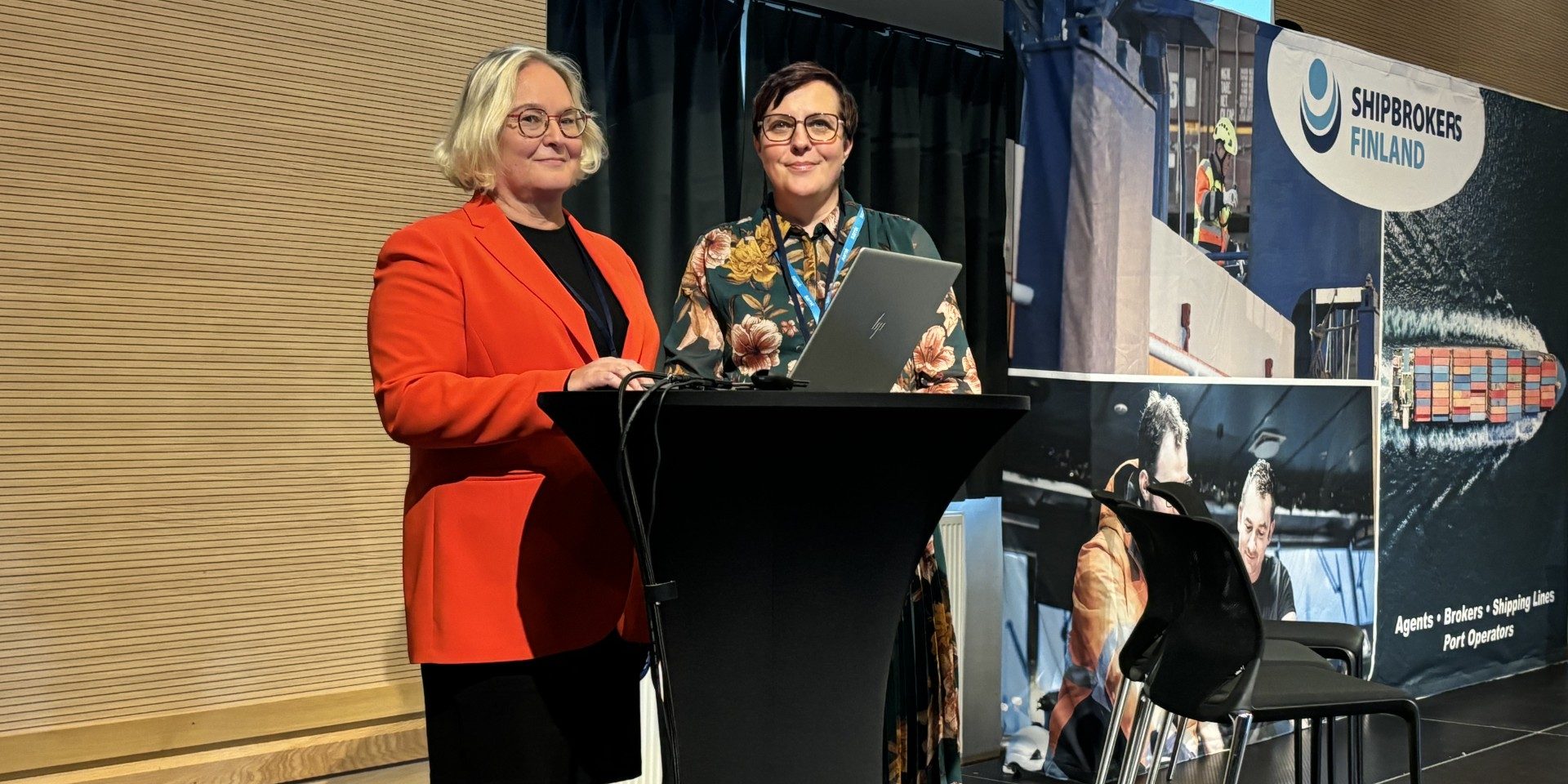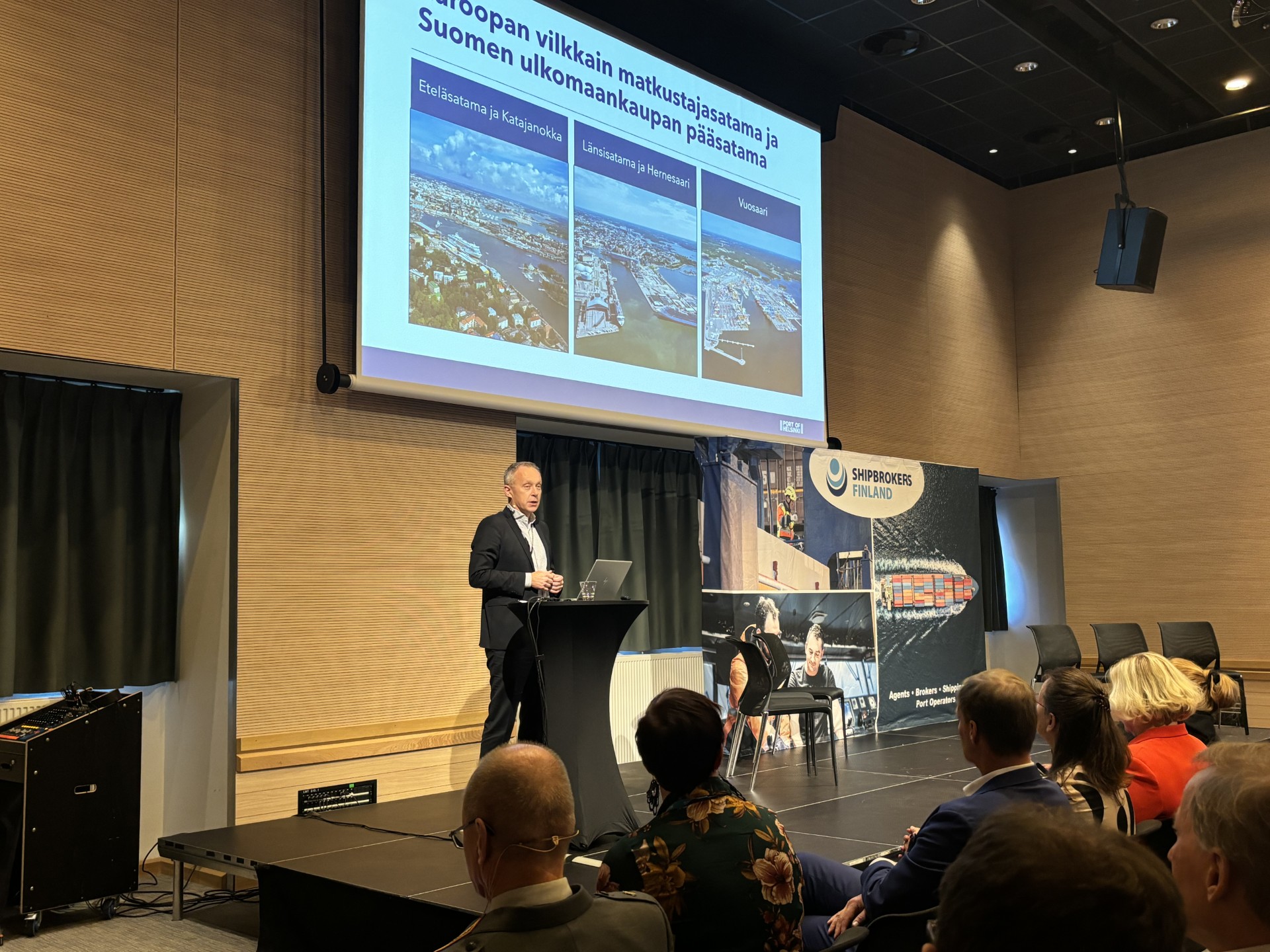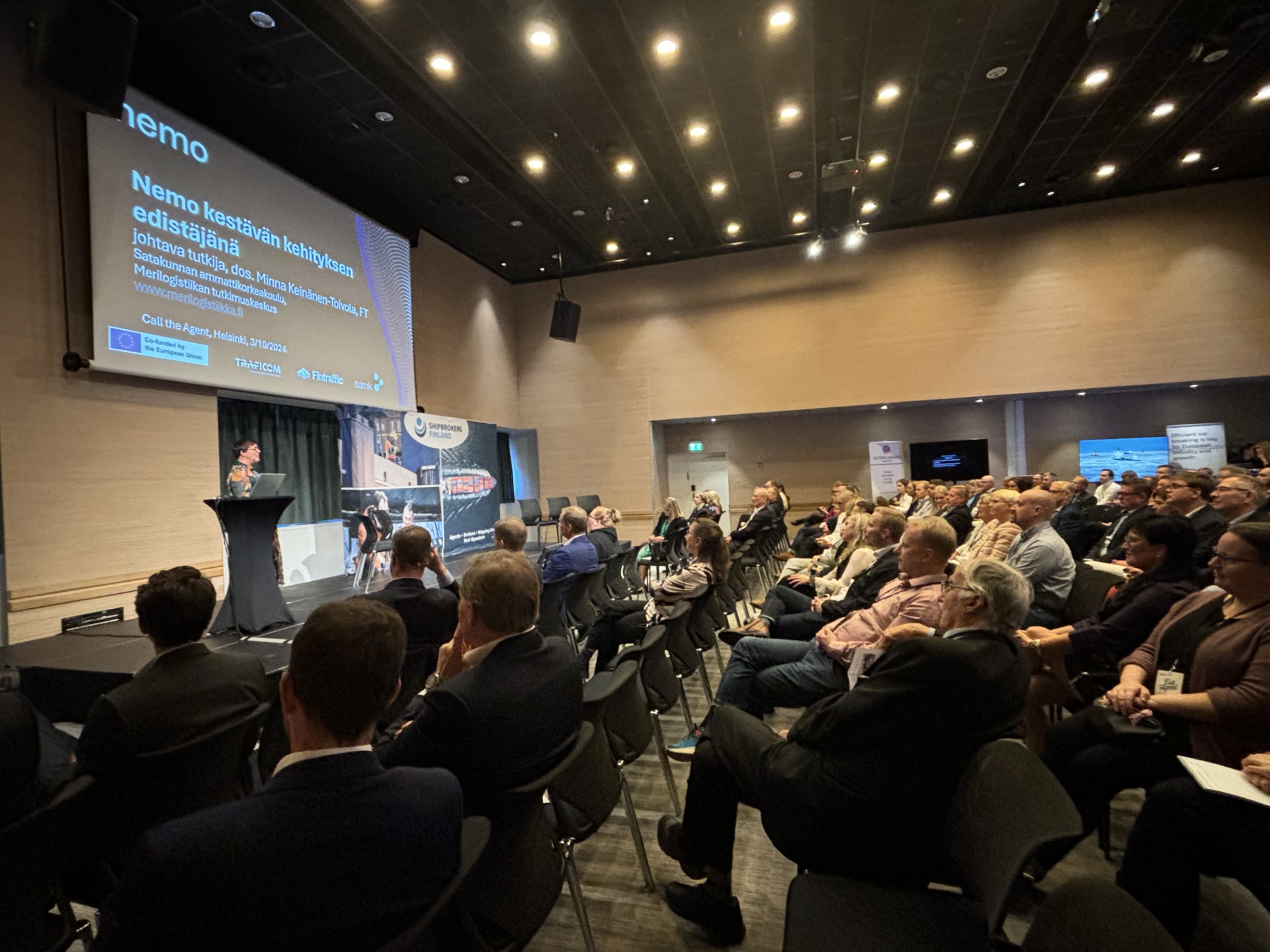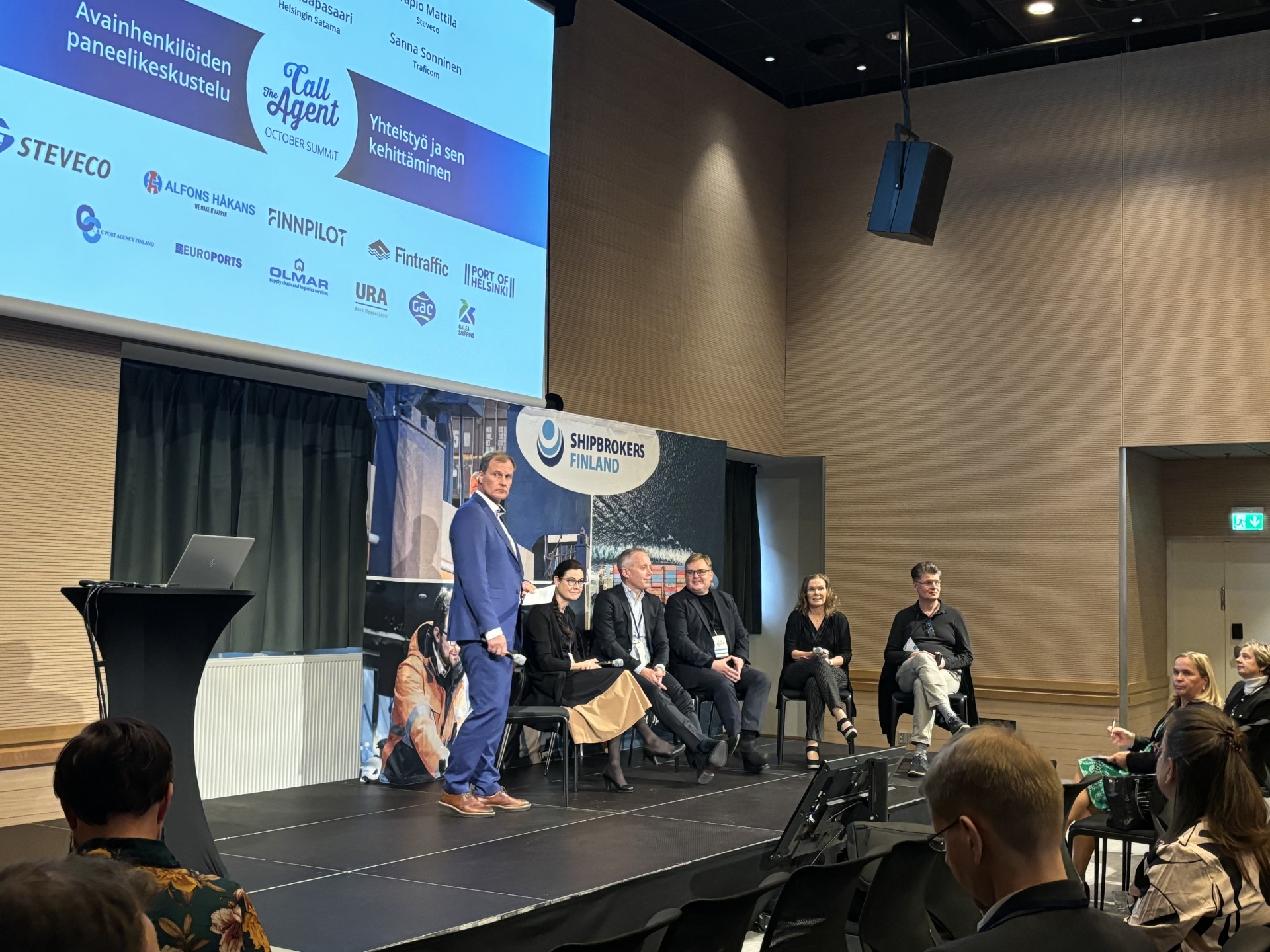Cooperation is key at Shipbrokers Finland Call the Agent event
Shipbrokers Finland, led by Sari Turkkila and now in its 6th edition, has once again brought together maritime professionals and stakeholders to discuss current issues affecting the industry. Satakunta University of Applied Sciences and Maritime Logistics Research Center was also present at the event in Helsinki on 3.10.2024 with several experts. The theme of this year's event was cooperation, which is an essential part of everyday life in shipping and port operations.

At the heart of cooperation
Shipbrokers and agents’ activities are based on strong networking and cooperation with a wide range of stakeholders, including shipowners, ports, authorities and other maritime service providers. Without smooth and coordinated cooperation, the entire logistics chain would be jeopardised, as agents play a key role in the organisation of port calls and operational activities of ships.
This year's "Call the Agent" event addressed the different dimensions of cooperation for maritime operations. Speakers included experts from different fields who highlighted the importance of cooperation from their own perspectives. Professor Ulla Tapaninen from the University of Tallinn stressed the importance of cooperation. She gave the great example of the importance of cooperation between the large maritime cluster in Estonia, which has been successful and has benefited, for example, from the green transition of ports.
Ville Haapasaari, Managing Director of the Port of Helsinki, highlighted the importance of the many different stakeholders working in the port and their cooperation. In addition, cooperation with different authorities must be smooth and interactive to guarantee the operation of ports for all stakeholders. Mikko Heiskanen of the Defence Forces also highlighted the importance of cooperation between authorities in terms of security of supply. Ports are important traffic nodes for infrastructure and their operation must be ensured even in exceptional situations.

The interplay of technology and people
One of the key themes of the event was the role of digitalisation and the procedures it is changing. In the first presentation at Fintraffic, Miikka Kälvinmäki stressed the need for stakeholders to prepare for the implementation of NEMO. Now at the latest "something needs to be done". He also confirmed that NEMO will be fully operational on 1.1.2026, when declarations can and must be made there. Minna Keinänen-Toivola went through the NEMO CEF project and highlighted the changes that the project will bring. Keinänen-Toivola emphasized the sustainable development aspects of the project in NEMO. Petri Kalske from Fintraffic discussed the POLO Port Activity App and highlighted the opportunities it brings in the context of the implementation of NEMO. The App, called the "The wild second cousin", can be customised for each customer and can produce the data needed by the customer.
Karno Tenovuo gave a more extensive presentation on the Digital Port Call tool and Hannu Rummukainen from VTT on the use of Admiral AI in port operations. The speakers highlighted concrete examples of how technological innovations such as real-time information systems and smart port platforms have increased information transparency and improved process efficiency. These technologies make it possible to ensure that all parties involved have access to up-to-date information and can react quickly to changing circumstances.

Challenges and opportunities for the future
The event concluded with a panel discussion on the themes of the day. The panel discussion involved all critical sectors of the supply chain: port, shipowner, authority, port operator and end-customer. All agreed that cooperation is needed and should be developed both vertically and horizontally. Finnish ports still have a long way to go to match the clustered approach developed in Estonia.
Towards the end of the panel, the focus turned to the future. Maritime sector will face increasing challenges in the future, such as geopolitical and political challenges, scheduling problems and consequent disruptions to supply chains. These challenges can only be met through close cooperation and innovative solutions, not forgetting the green transition.
One of the key issues raised was how to further strengthen cooperation in a changing environment. Different types of integration, digitalisation and reliable ETAs and ATAs were raised.
The "Call the Agent" event provided a valuable opportunity for all participants to network, share best practices and learn new things. Collaboration is the foundation of the maritime industry and will continue to be a key factor as the industry faces new challenges and opportunities in the future.

